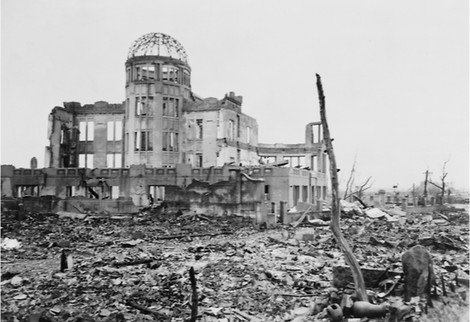Your podcast discovery platform
Curious minds select the most fascinating podcasts from around the world. Discover hand-piqd audio recommendations on your favorite topics.

piqer for: Globalization and politics Technology and society Global finds
I am a scholar of International Relations of the Middle East. My research focuses on Middle East security, political violence and logic of warfare, as well as competition and cooperation between regular and irregular armed groups. I am currently a Lecturer in Middle East Politics and International Relations at the Leiden Institute for Area Studies (LIAS), Leiden University.
American (Un)comfortable Memories Of Hiroshima
August marks the anniversary of the cataclysmic bombing of Hiroshima and Nagasaki at the end of WWII. For over half a century, narratives of ‘necessity’ and ‘inevitability’ of the first nuclear catastrophe make us shiver every summer. Conventional wisdom suggests that — although monstrous — Hiroshima was the inexorable moral price to prevent many more deaths and destruction around the globe from happening. However, conventional wisdom is appealing because it is often simplistic or plainly wrong. In fact, as Peter Van Buren suggests in this article, the 'myth of Hiroshima' is all in its alleged inevitability.
A former US Army veteran, who retired from State Department after publishing in 2011 We Meant Well: How I Helped Lose the Battle for the Hearts and Minds of the Iraqi People, Van Buren is now a columnist, incessantly raising awareness about the moral consequences of US imperial overstretching. In his latest book — a work of fiction titled Hooper’s War: A Novel of WWII Japan — he makes Lieutenant Hooper say that 'memories are the price we pay for surviving'.
Yet, once the ashes of war wither away, memories become sometimes so uncomfortable that we need to reinvent them. In this article, Van Buren traces the reason that brought Harry Truman to press the nuclear button on 6 August 1945. It was a feeling of fear and vengeance that led to collective punishment, whereas narratives of ‘impossible alternatives’ that have followed the nuclear bombing of Japan are more a rhetorical operation to retrospectively endow Truman's decision with some moral allure.
Victimizing civilians is in fact a well-entrenched strategy of war. As Alexander Drownes has shown, all states — democracies even more than autocracies — tend to deliberately target noncombatants on a mass scale when they fear losing a conflict. Van Buren sheds light on the US psychological posture that led to Hiroshima, as well as on the cosmetic enterprise of morally whitewashing victors' past crimes.
